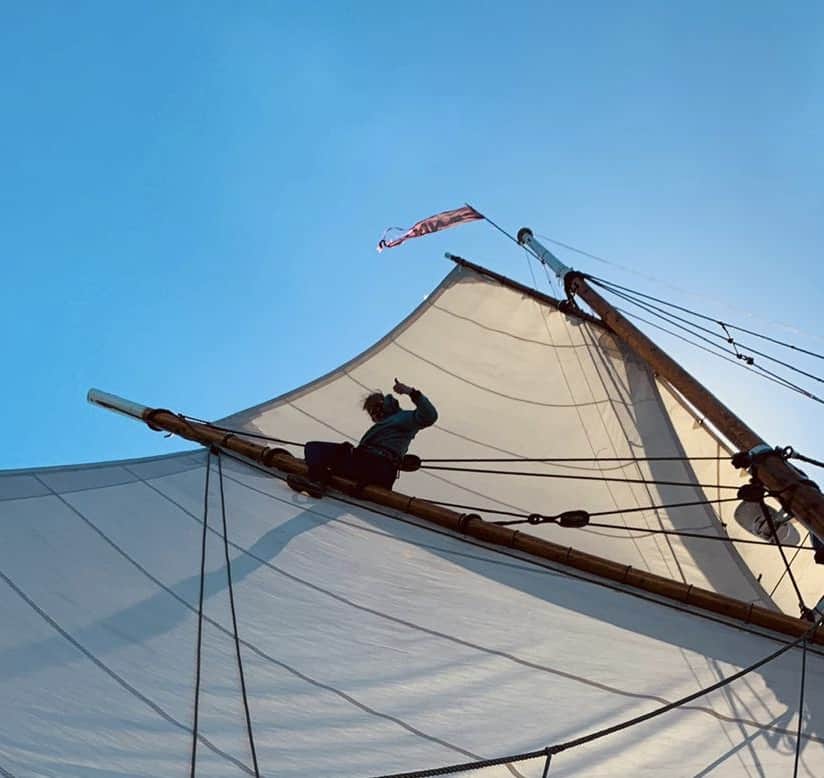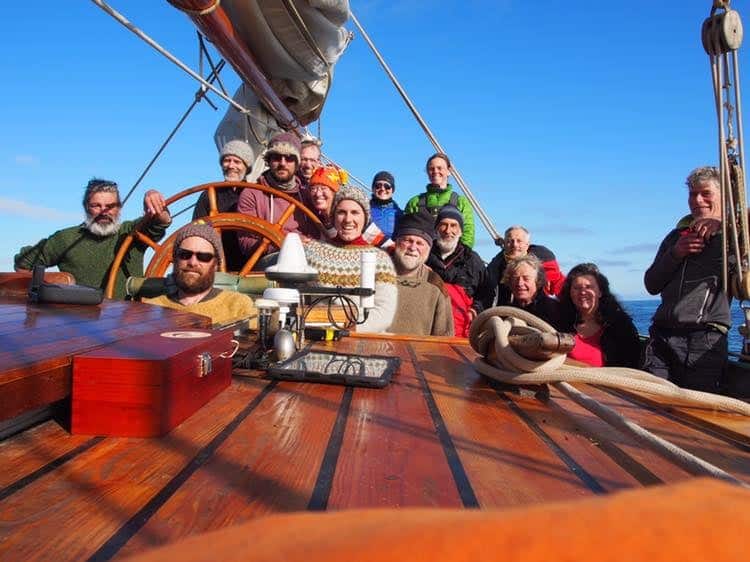
Get Noticed for Your Next Volunteering or Crewing Role
Having been involved with the management of various ships, as well as volunteer and trainee programs, I’ve seen my fair share of sailing CVs. Whether they’ve been submitted for a first-time voluntary role or the position of Master on a square rigger, applications are often plagued by the same pitfalls. Here are a few of my bugbears, and some tips for getting noticed and being taken seriously.
Oh…the Romance of the Ocean Waves
Your opener is key, be it email, cover letter or CV intro. If you want one piece of advice on improving your applications to traditional sailing boats, let it be this. PLEASE don’t open with ‘I’ve always had a love of the ocean waves’. Please. Or even worse (and I have seen it, with head in hands), ‘The sea is in my soul’. Trust me, it does not come across well.
As a rule, managers, skippers and vessel owners are after do-ers. People who will get stuck in, work hard, learn fast and share a laugh while they’re doing it. If they get the impression of someone who will be stood at the rail, lost in reverie at the beauty of it all, your application will go straight in the bin. That’s not to say they don’t all secretly harbour such reveries (they wouldn’t put up with the low pay, tricky conditions or difficulty maintaining a steady life ashore if they didn’t), but romance will not get you the job. Quite the opposite.
Much better to start by alluding to your working knowledge of the Jabsco sea toilet. Or your recipe for a banging one-pan breakfast hash that’ll easily feed 12 and uses nothing but dry stores. If you must start with an anecdote, make it one about when times were difficult, rather than serenely beautiful and poetic. Fundamentally, if you come out of a tricky situation at sea and still want to work there, you’re the right kind of person for the job.

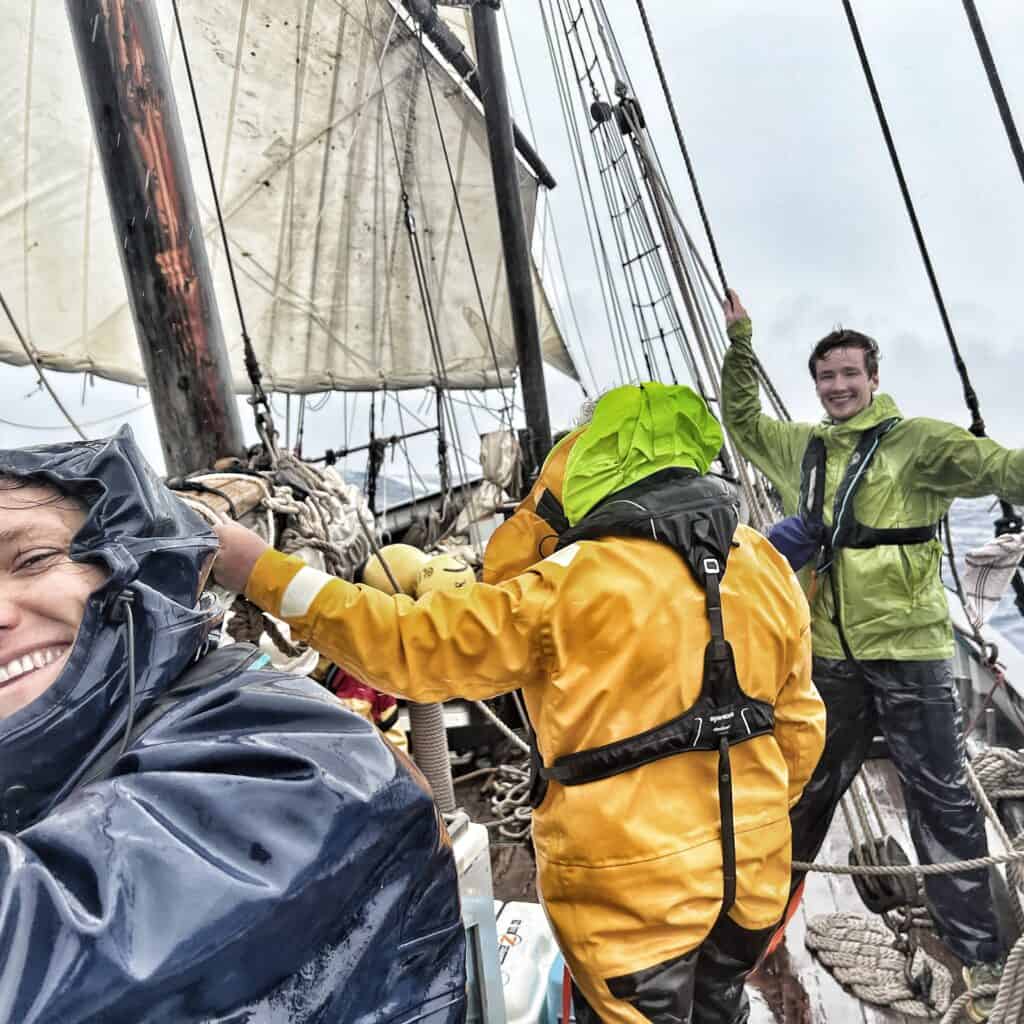
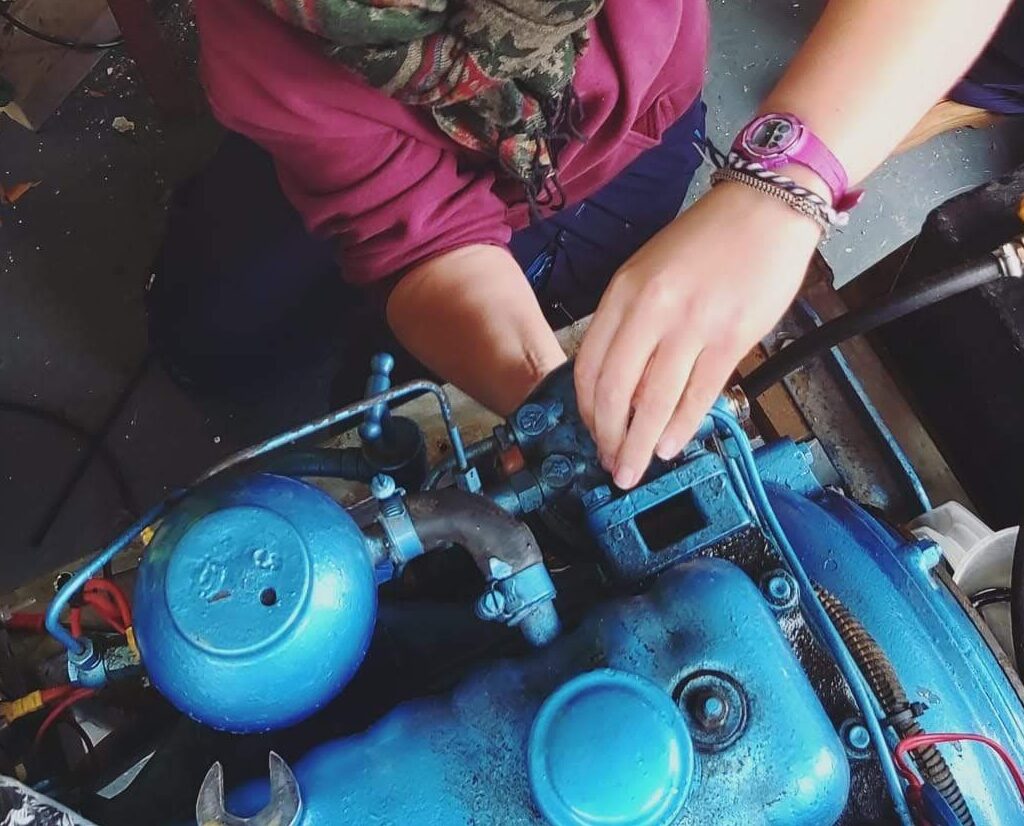
Qualifications & Specifics
If the role requires specific qualifications, be specific about your qualifications. Every vessel will have its own safe manning requirements, and there is absolutely no point in applying with a ticket that you feel should be equivalent, or with aspirations to get there one day. These tickets are not ‘nice to haves’, the boat can’t legally sail without them.
If you HAVE the right bits of paper, for goodness sake make that obvious. A back and forth by email about the tonnage limit on your Master’s ticket is incredibly off-putting when you could have just included it in your CV in the first place. Also, check your tickets haven’t expired. Please!
Sometimes it might not be clear what the formal requirements are for a particular role. In this case can I highly recommend emailing the relevant person and asking, rather than blindly submitting a CV. Not only will this save potentially wasting your own time, but the team for the ship in question will likely recognise their error, amend the job description and appreciate your help in stemming an avalanche of under-qualified applicants. Suddenly you’re a name they remember. Winner.
What Can I do for the Boat vs What Can the Boat do for Me?
What makes a ‘good’ CV and a ‘bad’ CV. Apart from the obvious question of whether or not you’re qualified for the job, it largely comes down to this: a good CV details what the applicant can do for the boat. A bad CV details what the boat might do for the applicant.
What Can I do for the Boat? Think about your SKILLS
If you’ve never worked at sea before you might feel you have nothing to write about on your application. Remember that a role on board is about forming a useful part of a tiny, self-contained community. This community needs to function day to day, keep charter guests entertained, the boat looking shipshape, everyone fed and watered and maintenance tasks completed. Even experienced seafarers would be advised to round out their applications with something more than just their tickets, as traditional sailing especially requires multi-functional crew-members. All of the below are relevant (among many many other things).
- Cooking
- Cleaning
- Willingness to do the dishes!
- Plumbing
- Engineering
- Woodworking
- Sewing
- Painting, varnishing, sign-writing
- First aid
- Photography
- Knowledge of wildlife
- Logistics and management skills
- Languages
- Driving
- Music

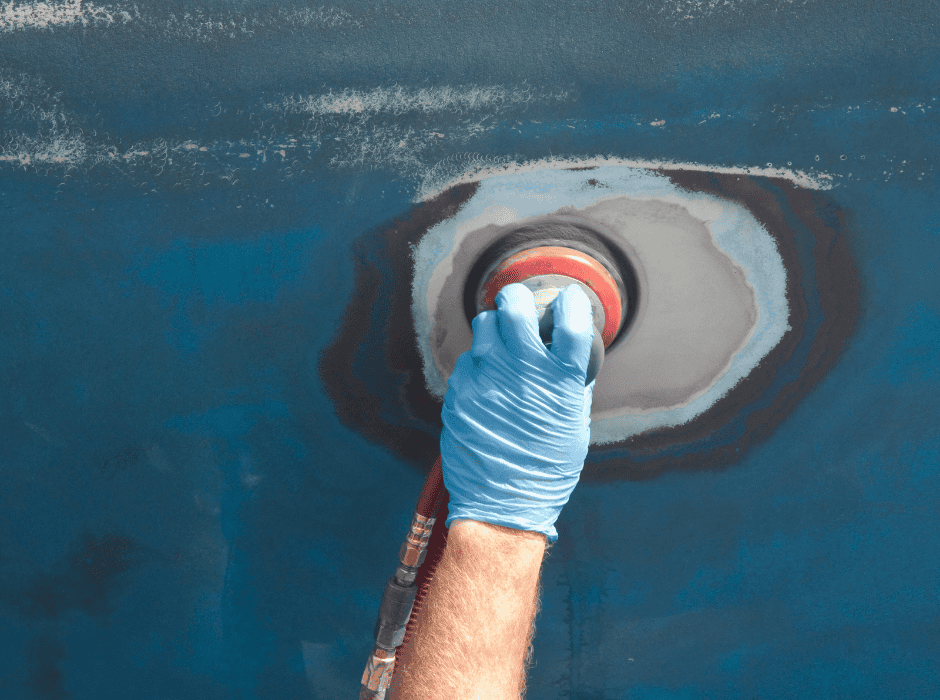

What Can the Boat do for Me? Things to Avoid…
This goes back to the ‘Romance of the Ocean Waves’ problem. Anyone who’s ever seen Poldark could imagine themselves under a starry sky with the flapping of canvas and the creaking of ropes, and think that could be a wonderful way to spend a month or two. That doesn’t mean they would be a useful member of crew. Funnily enough a ship I was working for featured in the most recent iteration of Poldark and not one of the crew had ever seen an episode… I think Aiden Turner was a little put out, but that’s a story for another time…
Avoid, if you can, talking about why you would love to be at sea… why you want your course to be determined by the wind, having just quit your job… why sailing is the only way to repair your broken heart… It all smacks of self-absorption and a disconnect from the reality of hard work and getting your hands dirty.
If you’re after the sea time to get your next qualification, brilliant, but don’t make it sound like you’ll be jumping ship as soon as you reach that milestone. Have an open conversation about your career development when you get to interview. There are many sailing organisations who would love to foster an upcoming mate or skipper and may even help financially towards your qualifications, so tread carefully at the application stage.
To Photo or Not to Photo?
It seems to have become almost ubiquitous to include a windswept photograph of yourself at the top of your CV. Which is lovely, and a picture tells a thousand words, but therein can lie the problem. What words are being told by your photo?
Should it be smart or casual? Staged or action shot? Taken whilst sailing? What sort of boat? And what if you haven’t got any photos of yourself sailing? Will it be assumed you’ve never been? Does having a polished photo on deck imply you were there for the ‘gram rather than the sailing? If your photo is on a modern yacht and you’re applying for a traditional ship, does that matter? Where is the line between ‘presentable’ and ‘I’m also applying to the superyachts, sorry I’m not really that interested in heritage vessels’?
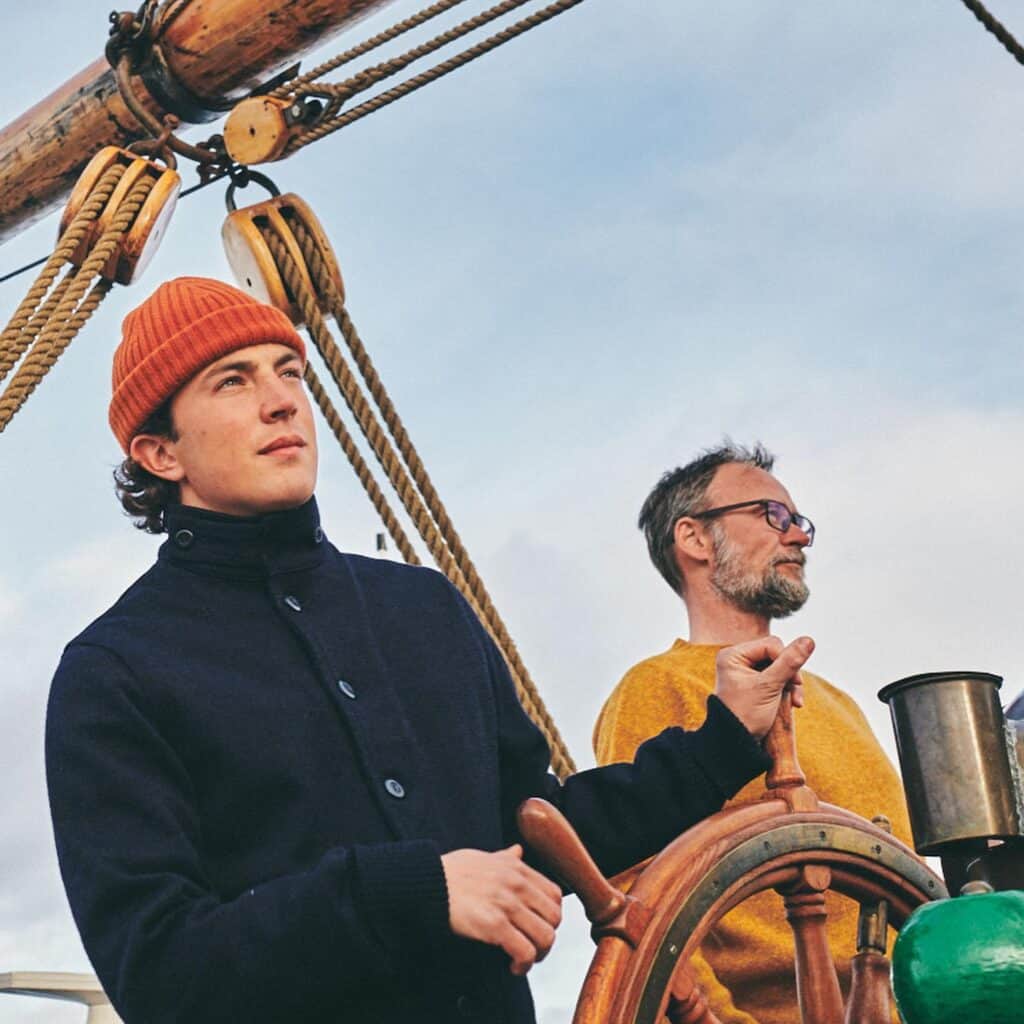
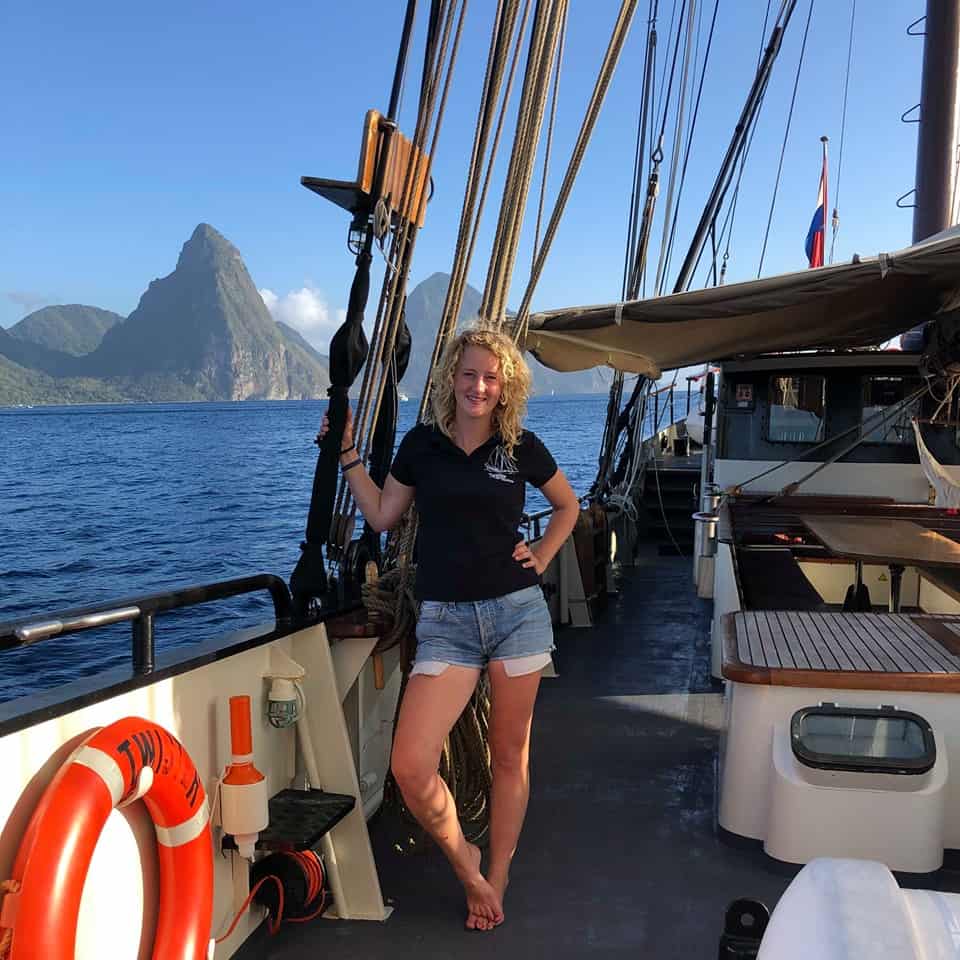
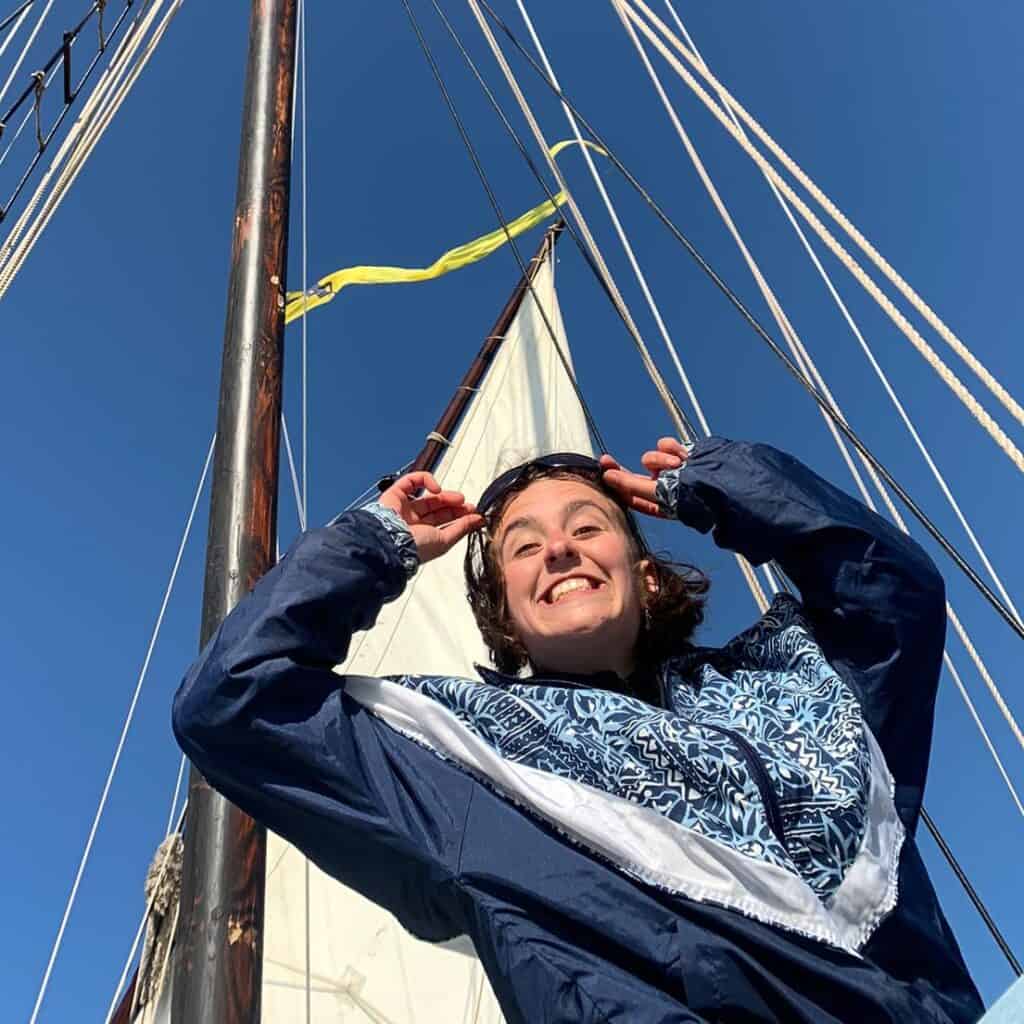
What does a photo say about your character, as well as your capabilities? Cohesion with the rest of the crew can be an incredibly important factor. How do you choose a picture that demonstrates professionalism, kindness, resilience, humility, intelligence and humour without either taking yourself too seriously or taking the piss?
You also have the unavoidable reality of unconscious bias to contend with. Despite the potential best efforts of the recipient of your application to be unprejudiced with regard to age, sex, gender, race and myriad other things, unconscious bias will impact their decision making. Conscious bias too, unfortunately.
Honestly? Unless you’ve got a snap you’re completely confident with, I’d say avoid a photo altogether. The rest of your CV should be enough to get you to interview, and that’s where they can get to know you face to face. At that point you can battle any bias, unconscious or otherwise, because by then you’re a person rather than just another name in a pile of applications.
Last But Not Least…
Write in the first person. It’s such a simple thing. You’d be amazed how many applications I’ve seen that are written in the third person. ‘Jessie is a competent (if colour-blind) sailor and loves to make herself useful. She enjoys furling the t’gallants and makes a lovely roast chicken.’ Shudder. It makes it sound like your mum’s written it for you. Unless your mum HAS written it for you, stick to I/me/my. Otherwise I might just give your mum the job…
Looking to Expand Your Skillset? Check out our Courses Section…